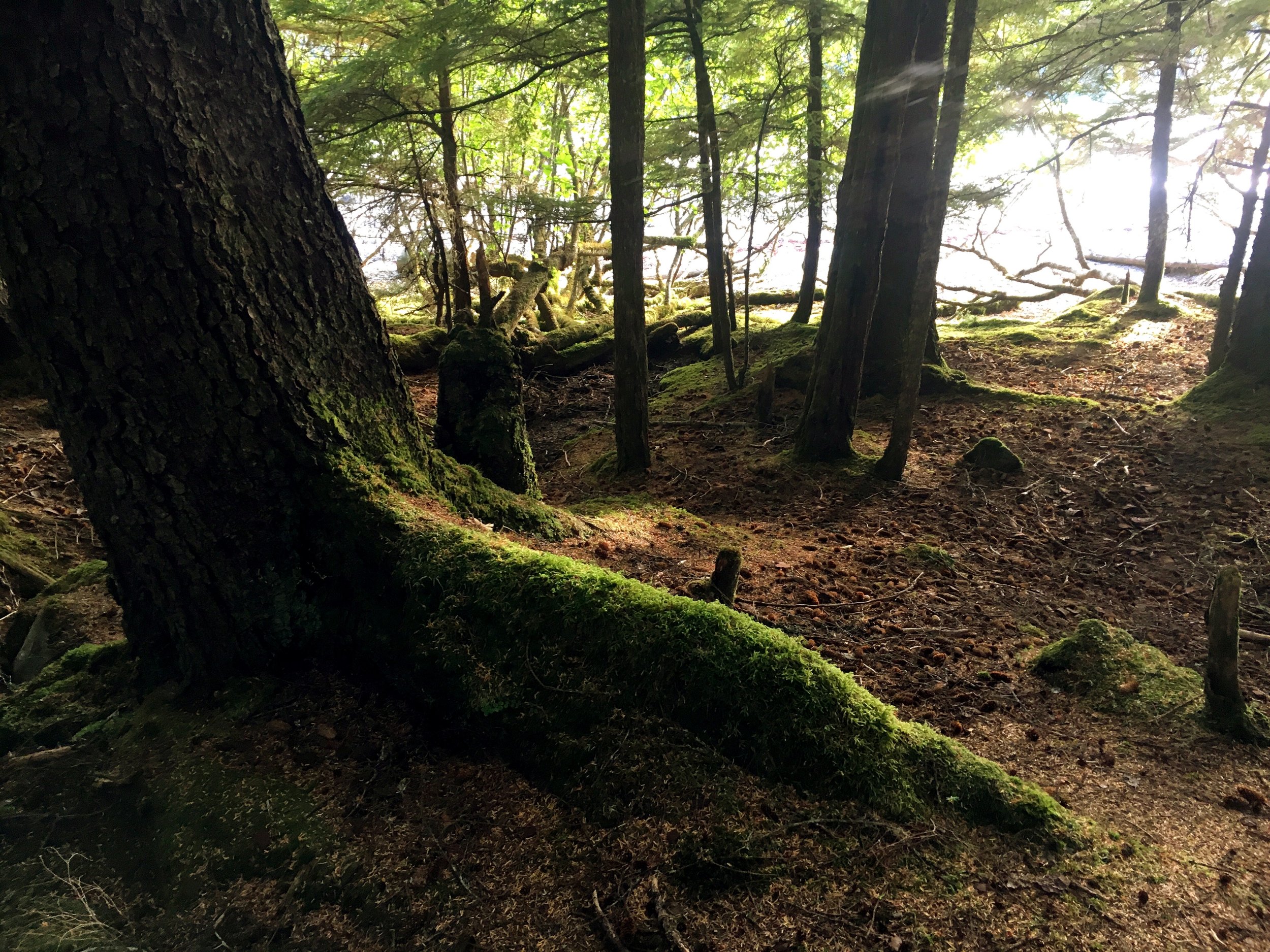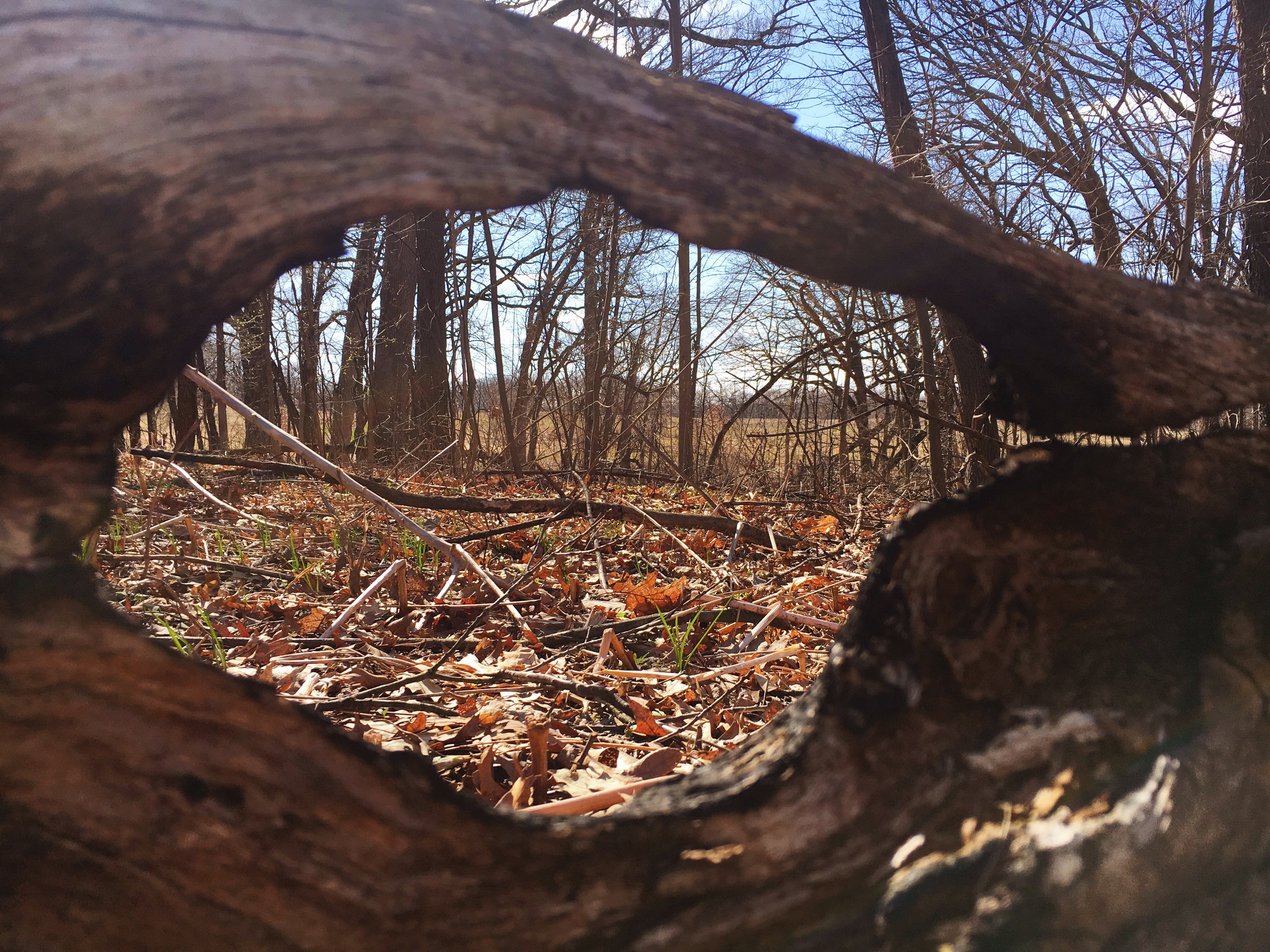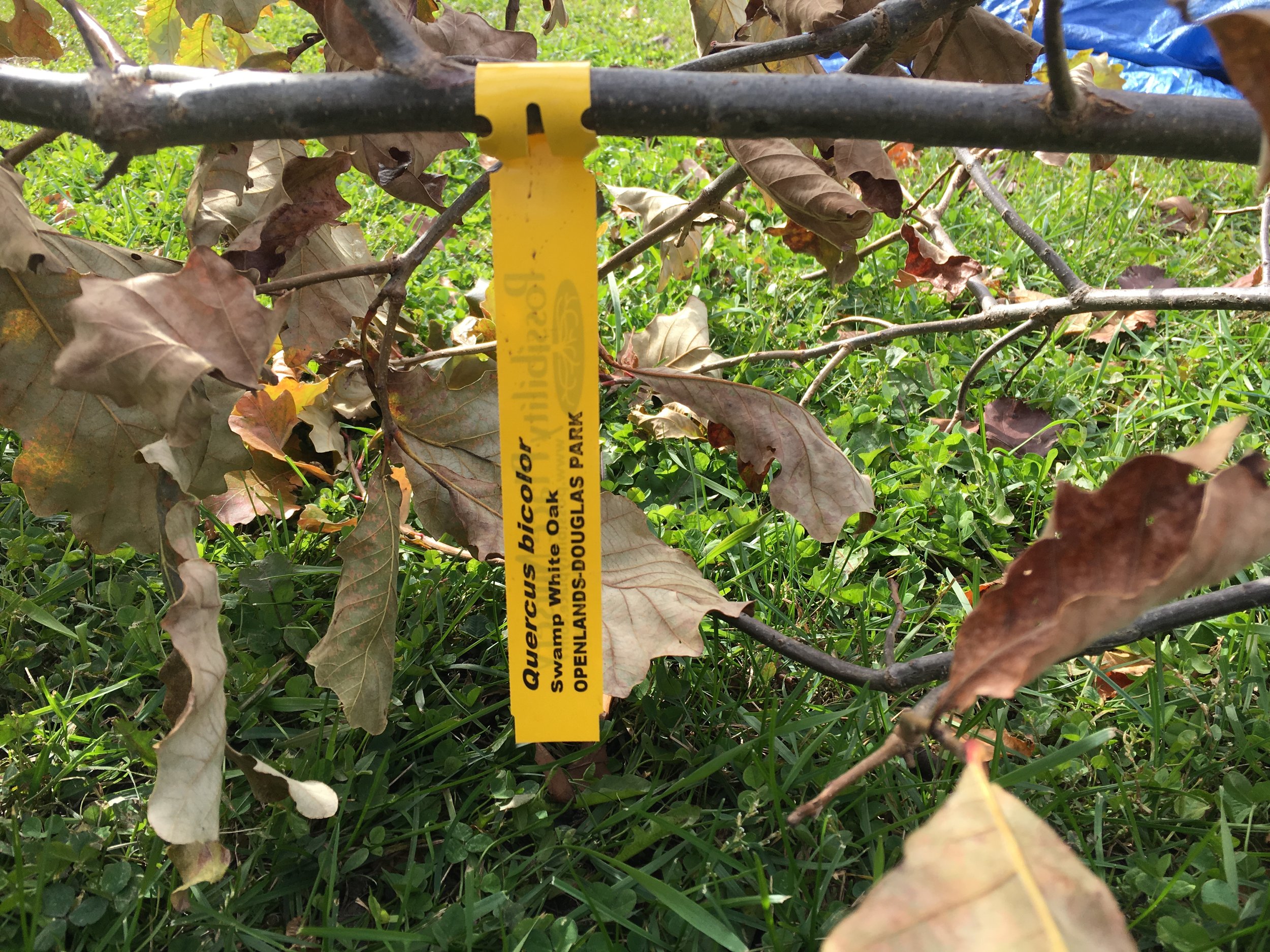Fostering Biodiverse Communities
Author: Risa Prezzano, 2024 cohort member
Exploring Alaska’s Inside Passage on foot with family and without the internet. August 2018.
I am learning a lot about myself through the GCLI program, with a sudden influx of information and the urge to hold on to something meaningful. I scribbled down, “Climate change = racial justice,” in my hurricane of notes during a webinar. How do I take what I’m receiving and bring it back to my life in Chicago?
As advocates for nature-based solutions and environmentally safe spaces, we are taught that having a wide range of animals, plants, and microorganisms is essential for a healthy ecosystem. I am motivated by the process and journey rather than achievements and milestones. I’ve found that failure is no longer an end but a beginning to something that could be. Diversity and creativity help keep our ecosystem in constant change. It is a priority to bridge our differences in terms of our social responsibility to this planet.
A view through a wooden eye-shaped opening during a hike in the vicinity of Saganashkee Slough which sits in the Forest Preserve of Cook County (FPCC). April 2019.
I’ve always lived far from my homeland. Not because I don’t want to be there but because I’ve had to adapt to where I am today due to circumstances outside my control. My formal education encouraged me to always be polite, law-abiding, and easy to work with. I was taught to immerse myself in Western ideals and to ignore the cultural diversity of my Asian identity. I was not born in America and was born in Japan, but I am not Japanese. I’m a Filipino that never lived in her own home country, always a visitor, picking up everything I know about the Philippines from my parents, their stories, books, music, and lived experiences. The complexity of being under the Asian stereotype carries subtle distinctions that I am both drawn to and repelled by.
Acknowledging Performative Acts of DEI
I used to be a language translator, and when I took a job, it was important for me to feel qualified enough to facilitate conversations with all the nuances that come with communication. It was not just about being proficient in reading, writing, listening, and speaking. I needed to be prepared to allow for conversations about culture, tradition, history, and body language. I also needed to maintain trust between the translation of cultures. Diversity, Equity, and Inclusion look different in different countries, communities, or workplaces. There are differences in how we talk about DEI and address the problems within the systems we adhere to in our society.
I realize that I am always an outsider with inevitable blind spots and that there is an unwritten code of conduct in inviting myself to spaces that I have entered. To meet people and trees where they are at with kindness, humility, and patience to find respectful reciprocity and symbiosis. I admit my ignorance to the land because I have lost my connection to the people and their stories. While I live in Chicago, I acknowledge that I am an uninvited guest on the unceded land of the Potawatomi people. I listened to an audible book titled Up Home (One Girl’s Journey) by Dr. Ruth Simmons during my trip to Knoxville for our in-person session, and this took me back to why I signed up for GCLI: “I had learned from lived experience that knowledge of a people is best constructed person by person”.
Belonging, Kindness, and Sacred Spaces
My first Openlands planting event at Douglas Park in the fall of 2018. Officially renamed Frederick and Anna Murray Douglass Park in the fall of 2020. October 2018.
During the COVID-19 pandemic, working from home resurfaced my love for the outdoors, my environment, and my community. It offered a sense of belonging at a time when the Openlands’ TreeKeepers® certification and program was entirely virtual but most convenient and accessible to me. My fondest memories of being in nature were with my family. Family extends itself to close friends that make up my community. It was and still is what grounds me in uncomfortable spaces where my race and identity places me as an outsider to my home. My strength in adaptability reemerged, and my work as a volunteer TreeKeeper on the south side of Chicago connected me to communities I was now receiving invitations to join. At one point, someone asked me, where are you from? I don’t remember what I answered, but I do remember how I felt. I felt vulnerable because I was revealing my human side with authenticity. Today, this feeling has morphed into my pursuit to contribute, to receive feedback from others, to repair broken doors, and an ongoing attempt to bring others along. Through partnerships, community engagement, sponsors, coalitions, and intersectional groups, being in the field of technology shouldn’t discourage me from breaking out of silos for environmental studies.
Magnolias in bloom in Knoxville, TN. Photo taken by Risa during a tree walk, March 2024.
Recognizing the hardship of ancestors who paved the way for my opportunities today, I remember my father’s memories of hunger and deprivation during World War II during his formative years, which marked his outlook and expectations for the rest of his days. In 1967 at age 24, he worked hard to obtain his CPA certification. He was one of the first in his family to be recognized in higher education, leading him to the Asian Productivity Organization (APO) as a Budget Assistant for 3 years and promoted to Director of Finance and Administration where he continued for 35 more years. He talked about when he mattered enough to have a dedicated personal space, leadership opportunities, and his memory of the first inviting sacred educational learning space. His diplomacy, integrity, and leadership were my first observations and inspiration in my adult life. When I saw obstacles, he taught me to find an open door, and I realized how powerful a society can be through our differences and intersectionality. If he were still alive today, he would debate with me, but I know that he would also respect and support the work I do through my volunteer efforts, leading affinity groups, formal or casual.
A tour of Downtown Knoxville’s Trees led by 2023 GCLI alum Kasey Krouse and with members of the GCLI 2024 cohort. March, 2024.
Since becoming a TreeKeeper, I have continued to carve my path – flipping through books on tree identification, signing up for continuing education, and sinking into scientific publications that overlap with Traditional Ecological Knowledge (TEK), such as The Democracy of Species by Robin Wall Kimmerer. In these pages, I was motivated to write about my most essential takeaway from the GCLI program: the importance of connecting with my cohort, the alumni, and all the people who made this program an ecosystem beyond our time together in Knoxville, TN. I am encouraged by the unique qualities we each carry and am eager to watch this ecosystem grow and flourish even after our cohort experience has ended.





